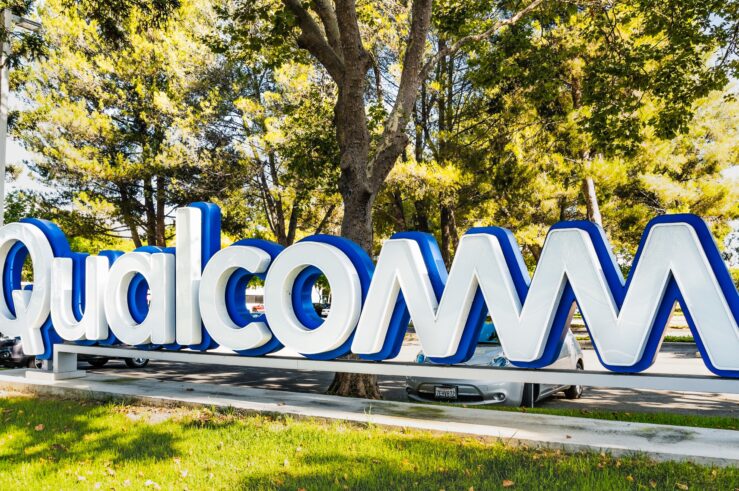Showing archive for: “Patents”
Exclusionary Pricing Without the Exclusion: Unpacking Qualcomm’s No License, No Chips Policy
Qualcomm is currently in the midst of a high-profile antitrust case against the FTC. At the heart of these proceedings lies Qualcomm’s so-called “No License, No Chips” (NLNC) policy, whereby it purportedly refuses to sell chips to OEMs that have not concluded a license agreement covering its underlying intellectual property. According to the FTC and ... Exclusionary Pricing Without the Exclusion: Unpacking Qualcomm’s No License, No Chips Policy
Why the FTC had to Abandon the Duty to Deal Argument Against Qualcomm
On November 22, the FTC filed its answering brief in the FTC v. Qualcomm litigation. As we’ve noted before, it has always seemed a little odd that the current FTC is so vigorously pursuing this case, given some of the precedents it might set and the Commission majority’s apparent views on such issues. But this ... Why the FTC had to Abandon the Duty to Deal Argument Against Qualcomm
Efficient Cartels and the Public Interest Defence – Do They Exist?
The concept of a “good” or “efficient” cartel is generally regarded by competition authorities as an oxymoron. A cartel is seen as the worst type of antitrust violation and one that warrants zero tolerance. Agreements between competitors to raise prices and share the market are assumed unambiguously to reduce economic welfare. As such, even if ... Efficient Cartels and the Public Interest Defence – Do They Exist?
The Snobbery of Bashing Big Tech
In the spring of 1669 a “flying coach” transported six passengers from Oxford to London in a single day. Within a few years similar carriage services connected many major towns to the capital. “As usual,” Lord Macaulay wrote in his history of England, “many persons” were “disposed to clamour against the innovation, simply because it ... The Snobbery of Bashing Big Tech
Does Apple’s “Discrimination” Against Rival Apps in the App Store harm Consumers?
A spate of recent newspaper investigations and commentary have focused on Apple allegedly discriminating against rivals in the App Store. The underlying assumption is that Apple, as a vertically integrated entity that operates both a platform for third-party apps and also makes it own apps, is acting nefariously whenever it “discriminates” against rival apps through ... Does Apple’s “Discrimination” Against Rival Apps in the App Store harm Consumers?
Why Data Is Not the New Oil
“Data is the new oil,” said Jaron Lanier in a recent op-ed for The New York Times. Lanier’s use of this metaphor is only the latest instance of what has become the dumbest meme in tech policy. As the digital economy becomes more prominent in our lives, it is not unreasonable to seek to understand ... Why Data Is Not the New Oil
The District Court’s FTC v. Qualcomm Decision Rests on Impermissible Inferences and Should Be Reversed
Last week the International Center for Law & Economics (ICLE) and twelve noted law and economics scholars filed an amicus brief in the Ninth Circuit in FTC v. Qualcomm, in support of appellant (Qualcomm) and urging reversal of the district court’s decision. The brief was authored by Geoffrey A. Manne, President & founder of ICLE, and ... The District Court’s FTC v. Qualcomm Decision Rests on Impermissible Inferences and Should Be Reversed
In FTC v. Qualcomm, Judge Koh Gets Lost in the Weeds
In his latest book, Tyler Cowen calls big business an “American anti-hero”. Cowen argues that the growing animosity towards successful technology firms is to a large extent unwarranted. After all, these companies have generated tremendous prosperity and jobs. Though it is less known to the public than its Silicon Valley counterparts, Qualcomm perfectly fits the ... In FTC v. Qualcomm, Judge Koh Gets Lost in the Weeds
A Regulatory Failure of Imagination
Underpinning many policy disputes is a frequently rehearsed conflict of visions: Should we experiment with policies that are likely to lead to superior, but unknown, solutions, or should we should stick to well-worn policies, regardless of how poorly they fit current circumstances? This conflict is clearly visible in the debate over whether DOJ should continue ... A Regulatory Failure of Imagination
Big Tech and Antitrust
[This post is the third in an ongoing symposium on “Should We Break Up Big Tech?” that will feature analysis and opinion from various perspectives.] [This post is authored by John E. Lopatka, Robert Noll Distinguished Professor of Law, School of Law, The Pennsylvania State University] Big Tech firms stand accused of many evils, and ... Big Tech and Antitrust
Should Patent Hold-Out Concerns Trump Patent Hold-Up Misgivings?
Over the last few years competition authorities in the US and elsewhere have repeatedly warned about the risk of patent hold-up in the licensing of Standard Essential Patents (SEPs). Concerns about such risks were front and center in the recent FTC case against Qualcomm, where the Court ultimately concluded that Qualcomm had used a series ... Should Patent Hold-Out Concerns Trump Patent Hold-Up Misgivings?
FTC v. Qualcomm: A Case of Regulatory Capture?
There is little doubt that the decision in May 2019 by the Northern District of California in FTC v. Qualcomm is of historical importance. Unless reversed or modified on appeal, the decision would require that the lead innovator behind 3G and 4G smartphone technology renegotiate hundreds of existing licenses with device producers and offer new ... FTC v. Qualcomm: A Case of Regulatory Capture?






